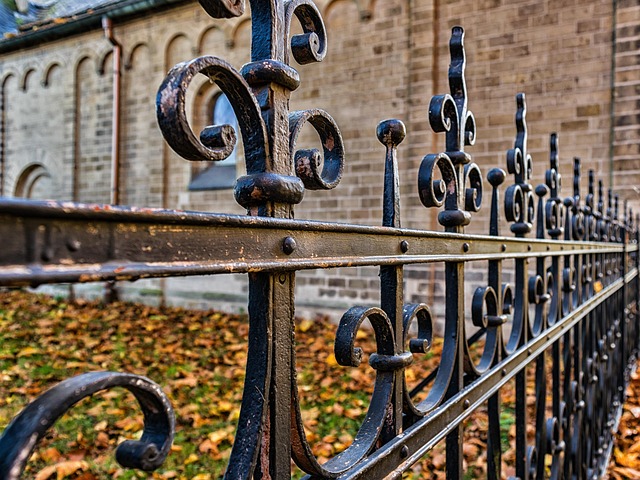In New Bedford, Massachusetts, planning a fence installation project involves understanding local regulations and budgeting accordingly. This article provides comprehensive cost estimates for fence installations in New Bedford, delving into the key factors that influence pricing. From navigating city-specific fencing regulations to exploring material costs, labor rates, and seasonal variations, this guide equips homeowners with essential insights. Additionally, we discuss other factors that can affect prices, ensuring informed decisions for your New Bedford fencing project.
- Understanding New Bedford's Fencing Regulations
- Material Costs for Fence Installation in New Bedford
- Labor Rates and Seasonal Variations in New Bedford
- Additional Factors Affecting Fence Installation Prices
Understanding New Bedford's Fencing Regulations
Before initiating any fence installation project in New Bedford, it’s crucial to understand the city’s specific regulations and guidelines. These rules are designed to maintain aesthetic standards and ensure safety for all residents. Generally, fencing regulations cover aspects like permitted fence materials, maximum heights, and placement restrictions, especially around historical districts or scenic areas.
New Bedford’s zoning laws may stipulate different requirements based on the property type and location. For instance, residential fences must adhere to certain design guidelines while commercial properties might have more flexibility. Understanding these regulations upfront can prevent costly mistakes during or after your fence installation process, ensuring you stay compliant with local codes.
Material Costs for Fence Installation in New Bedford
The cost of materials plays a significant role in fence installation projects. In New Bedford, homeowners can expect to pay anywhere from $15 to $40 per linear foot for fencing materials, depending on the type chosen. Wooden fences, a popular option, typically fall at the lower end of this range due to their affordability and longevity. Vinyl and metal fences, however, may cost more, with prices increasing based on design complexity and material quality.
Additional factors influencing material costs include the fence’s size and height. Larger or taller fences will require more materials, thereby increasing overall expenses. Moreover, unique styles or custom designs might necessitate specialized components, driving up material costs compared to standard, off-the-shelf fencing options.
Labor Rates and Seasonal Variations in New Bedford
Labor rates for fence installation in New Bedford can vary significantly, primarily due to seasonal fluctuations. During peak seasons, like summer, labor costs tend to be higher as demand is at its highest. This is when most homeowners opt to install fences, leading to increased competition among contractors and, consequently, higher pricing. In contrast, off-peak seasons may offer more affordable rates, but finding contractors available during these times might be challenging.
New Bedford’s climate plays a role in these variations. In the colder months, when ground conditions are less favorable for construction, labor costs might decrease slightly. Conversely, the summer months, with their ideal weather conditions, see an increase in labor rates to accommodate higher demand and the need for specialized skills in handling various fence types.
Additional Factors Affecting Fence Installation Prices
When getting a fence installation cost estimate for New Bedford, Massachusetts, several additional factors can significantly impact the final price. One of the key considerations is the type of material used. Different materials like wood, vinyl, chain link, or iron have varying costs and durability levels, each influencing the labor required for installation. The size and complexity of your fence are also crucial; longer fences or those with custom designs may incur extra charges due to increased material and labor needs.
Another factor is accessibility to the site where the fence will be installed. If the area is difficult to reach, has limited parking space, or requires special equipment for safe entry, these challenges can add to the installation cost as contractors need to account for additional resources and time. Furthermore, existing conditions on-site may necessitate specific techniques for installation, such as dealing with uneven terrain, which can also affect pricing.
